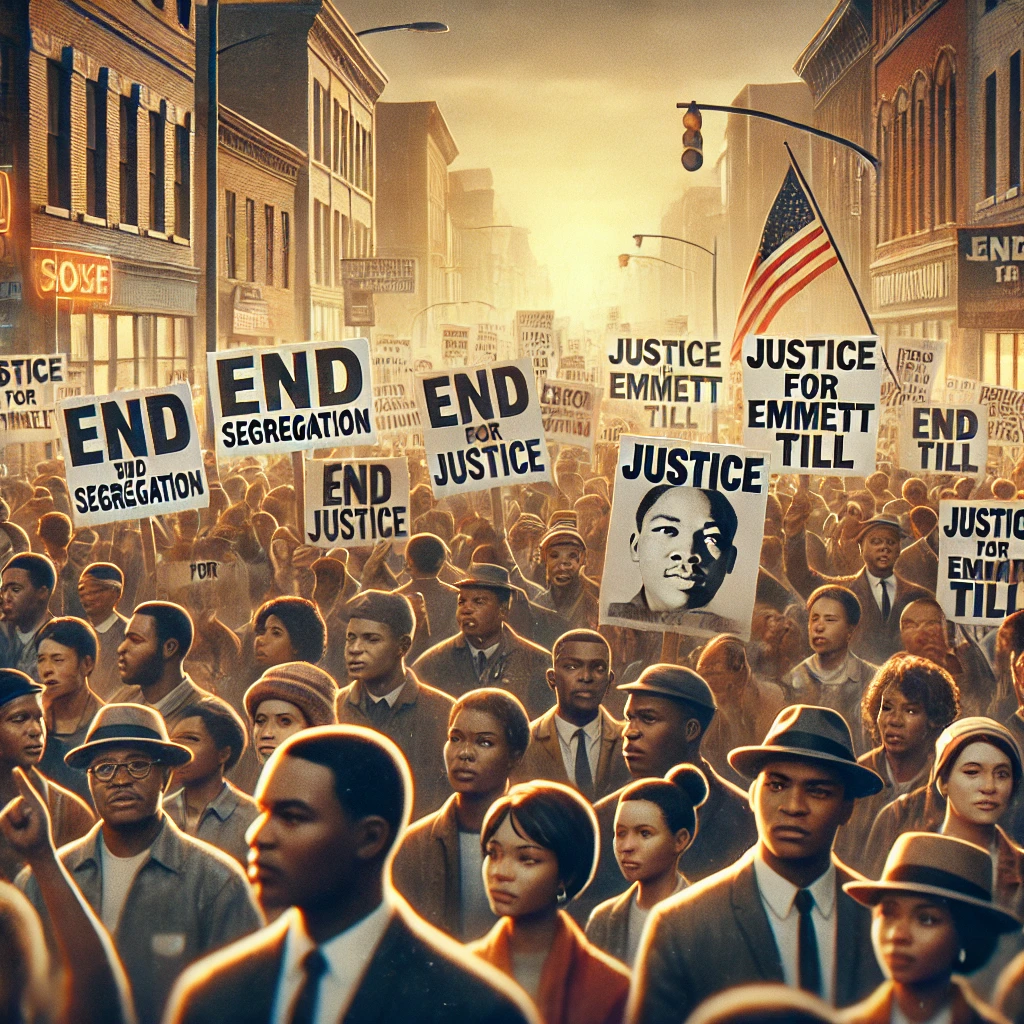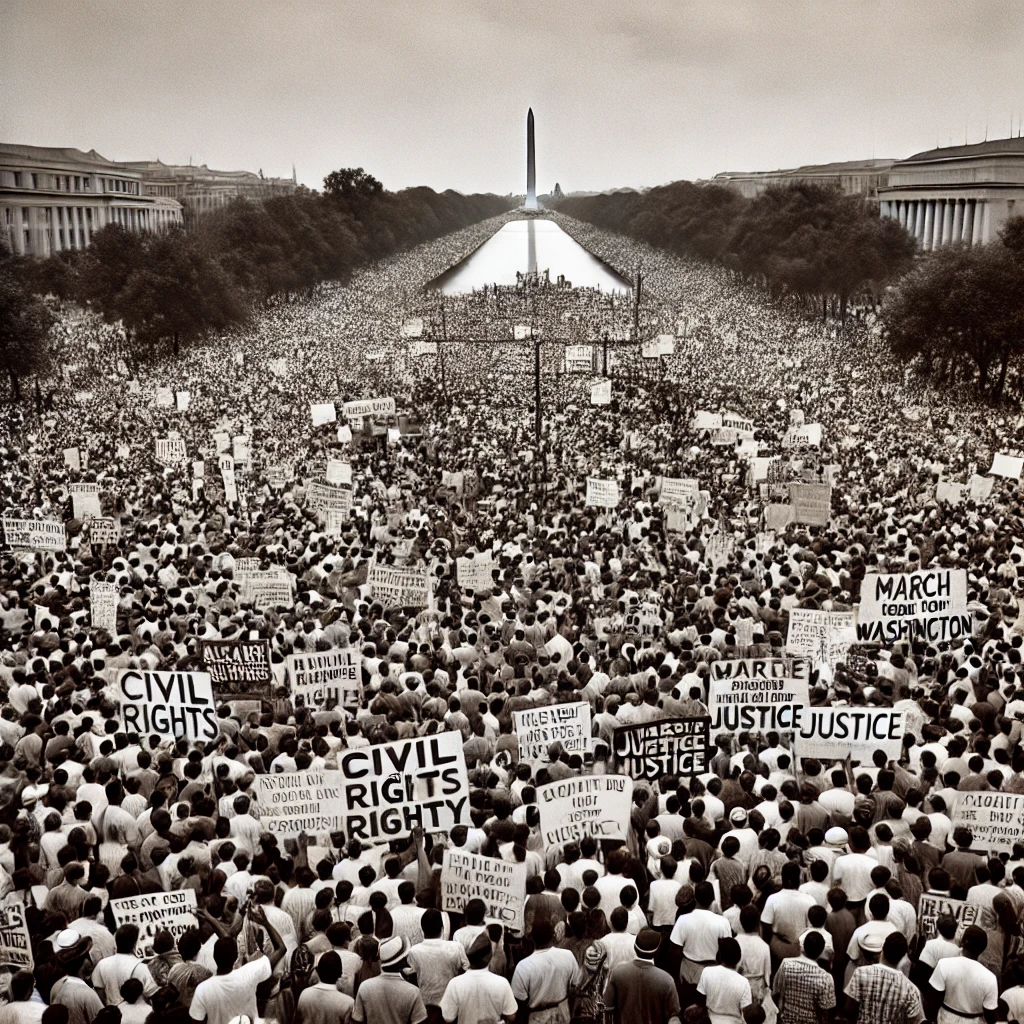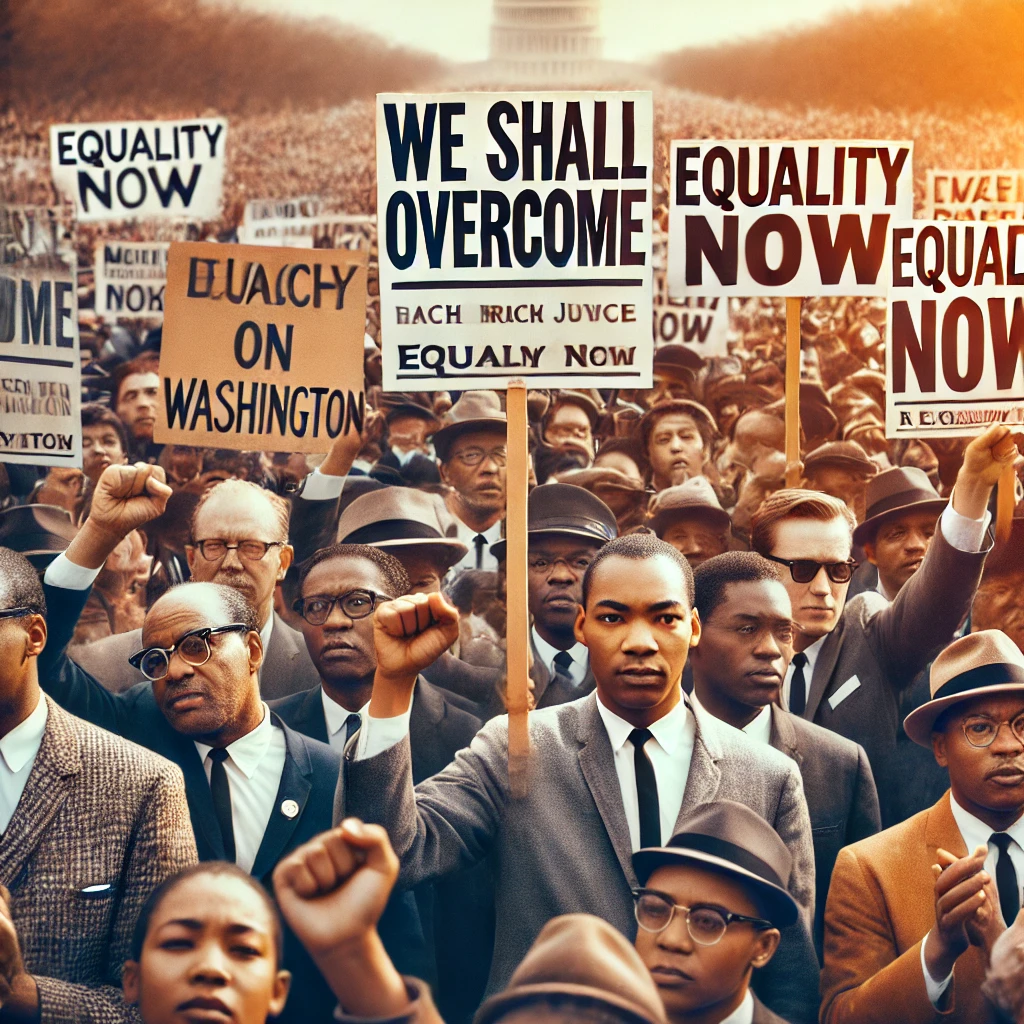On August 28, 1963, Dr. Martin Luther King Jr. delivered his iconic “I Have a Dream” speech during the March on Washington for Jobs and Freedom. This landmark event took place on the steps of the Lincoln Memorial, gathering over 250,000 demonstrators from various backgrounds, making it one of the largest rallies for human rights in United States history. The speech became a defining moment of the Civil Rights Movement, capturing the aspirations and frustrations of millions seeking equality and justice.
Dr. King’s speech articulated a powerful vision for a racially integrated and harmonious America. Delivered to a backdrop of historic civil rights struggles and deep-seated racial tensions, the address was not only a call for racial equality but also a demand for economic justice and the end of segregation. The speech is remembered as a masterful piece of oratory that combined moral urgency with a hopeful vision for the future.

The Content of the Speech
In his speech, Dr. King eloquently expressed his dream of a future where people would be judged by the content of their character rather than the color of their skin. He painted a vivid picture of a nation free from racial injustice, where equality and freedom were accessible to all citizens. King’s message was deeply rooted in the American dream and reflected the ideals enshrined in the U.S. Constitution and the Declaration of Independence.
The speech’s rhetoric and powerful imagery captivated the audience and significantly influenced public opinion. King’s words resonated deeply, emphasizing the urgency of civil rights legislation and the need for systemic change. His vision of a unified nation, free from racial and economic inequalities, served as both a profound critique of the status quo and an inspirational call to action.

The Impact and Legacy
The “I Have a Dream” speech played a crucial role in advancing the Civil Rights Movement. It drew national and international attention to the struggle for racial equality and was instrumental in galvanizing support for the movement. The speech’s impact was evident in the subsequent legislative victories, including the Civil Rights Act of 1964 and the Voting Rights Act of 1965, which addressed many of the issues highlighted by King.
Dr. King’s message extended beyond immediate policy changes, inspiring future generations to continue the fight for justice and equality. The speech has been commemorated in numerous ways, including through public monuments and educational programs, ensuring that its legacy endures. The annual observance of August 28th serves as a poignant reminder of the ongoing struggle for civil rights and the continued relevance of King’s vision in contemporary society.

The “I Have a Dream” speech remains a powerful symbol of hope and resilience, capturing the spirit of a movement that transformed American society. Its enduring impact is a testament to Dr. King’s profound influence on the quest for equality and social justice. The speech’s legacy continues to inspire activists and leaders, reinforcing the importance of pursuing a world where freedom, justice, and equality are realized for all.
